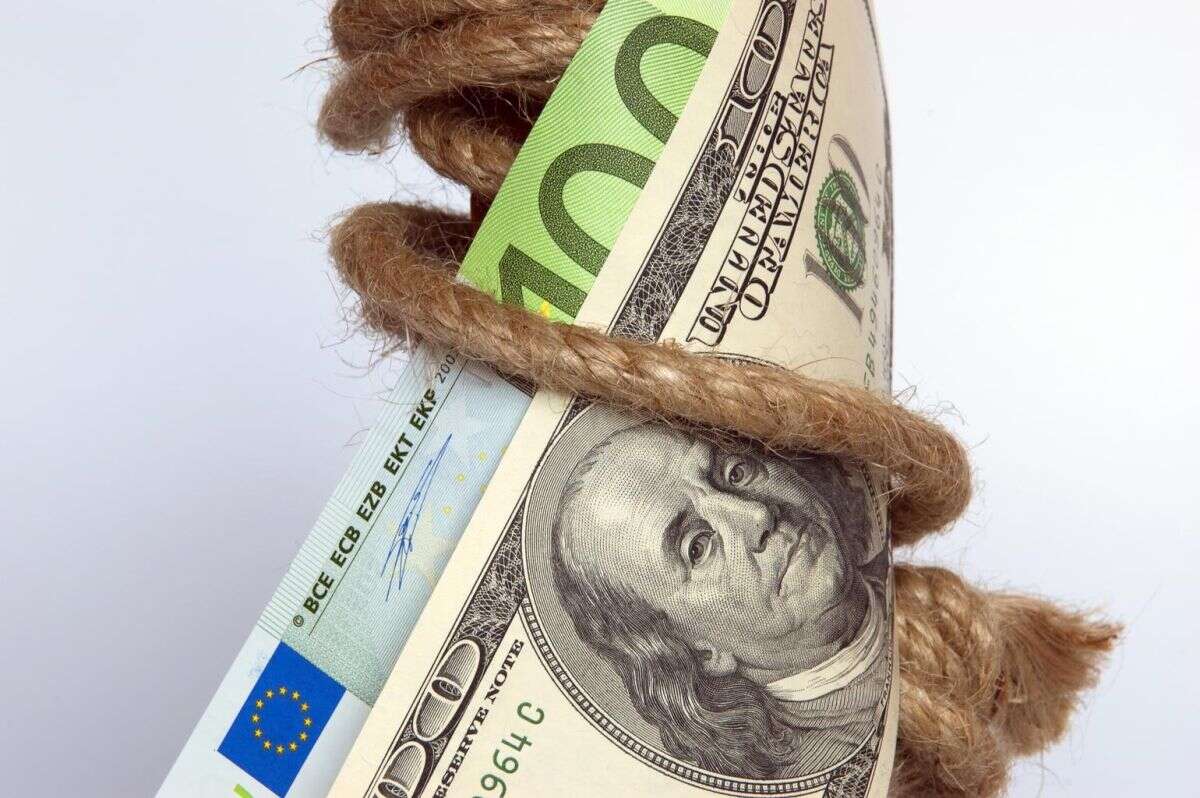Is there anything not influenced by money?
To answer this question, if there is anything, it isn’t very important. Commercial interests, Big Pharma, and device manufacturers in collusion with psychiatry, dominate the subject of ‘mental health’.
This means, in fact, there is very little that occurs in the subject that isn’t controlled by the money these interests provide.
This covers such things as the influence on all journals and scientific meetings through direct sponsorship and advertising revenues. It covers what scientific information is or isn’t made available to those who diagnose and treat patients. It covers what information is or is not made available to the public through advertising campaigns. 1 2 3

This means, in fact, there is very little that occurs in the subject that isn’t controlled by the money these interests provide.
It covers the influence on how and what psychiatrists and doctors are trained on. 4 5
And it covers direct payments to psychiatrists to be involved in studies regarding their products, even to the extent of then showing up and promoting their products.. 6 7
It is now common practice for pharmaceutical companies to ‘ghost write’ articles providing an endorsement of their product, to have it then, merely signed by psychiatrists but leaving the extent of the commercial company involvement in the article hidden.
“The practice of ghostwriting is neither rare nor harmless. Alleged ghost authors haunt the clinical trial literature of virtually all the recent blockbuster drugs, including medicines like Vioxx, Avandia, Paxil, Zoloft, Zyprexa, hormone-replacement therapy, and Fen-phen. As the makers of these drugs are embroiled in product liability lawsuits from their product’s tendency to cause harm, the involvement of ghostwriters in the production of scientific evidence to support their use has raised eyebrows.”
onathan Leo, Jeffrey R. Lacasse & Andrea N. Cimino Why Does Academic Medicine Allow Ghostwriting? A Prescription for Reform. 8
It has been shown that not only are the results of research studies and trials influenced by ‘sponsorship” by drug companies and other commercial influences but the direction of research in the entire field of psychiatry is also determined by the money provided by these commercial interests. 9 10 1112
Influence on the Diagnostic and Statistical Manual of Mental Disorders (DSM)
Yet, the task force that wrote version 5 of the DSM reported ties to the pharmaceutical industry in 68% of its membership.
As an example and as one particular area where there are very real concerns, is in regard to the Diagnostic and Statistical Manual of Mental Disorders (DSM).
This particular publication affects probably 99% of all psychiatric diagnoses in the United States and something close to that worldwide.
Yet, the task force that wrote version 5 of the DSM reported ties to the pharmaceutical industry in 68% of its membership. That was in fact a 20% increase over what was reported for DSM version 4. 13
Clinical Practice Guidelines
Still, in the US, a 2009 study found that of the 20 authors of major practice guidelines …18 (90%) had at least one financial relationship with the pharmaceutical industry.
Another immediate area of concern is in regard to Clinical Practice Guidelines – going beyond diagnosis to what do you then do about it? This is an obvious area where any conflicts of influence could occur as the guidelines give exact procedures and treatment including what drugs and devices to use.
Still, in the US, a 2009 study found that of the 20 authors of major practice guidelines ( schizophrenia, bipolar, and major depressive disorder MDD) 18 (90%) had at least one financial relationship with the pharmaceutical industry.
“Of the 18 workgroup members [authors] who had industry relationships, 77.7% received research funding, 72.2% were consultants, 44.4% were on corporate or advisory boards to companies, 38.8% received honoraria, 33.3% served on company speaker’s bureaus, and 16.6% held equity in a drug company that manufactured the drugs identified in the practice guidelines.”
Lisa Cosgrove, Harold J. Bursztajn, Sheldon Krimsky, Maria Anaya, Justin Walker. Conflicts of Interest and Disclosure in the American Psychiatric Association’s Clinical Practice Guidelines. 14
Psychiatrists making big money pushing drugs
[In the US] from 2014 to 2020 that $340,149,675 had been paid to psychiatrists by pharmaceutical companies for speaking, consulting, travel, food and sundry.
Over the last decade, or so in the United States, efforts have been made to make Big Pharma declare payments to practitioners so that any corruption could be visible.
An investigation by Mad in America found from 2014 to 2020 that $340,149,675 had been paid to psychiatrists by pharmaceutical companies for speaking, research, writing, consulting, travel, food and sundry. 750 psychiatrists were making more than $10,000 per year in payments and 75% of all psychiatrists in the US were receiving something of value from pharma companies even if only food and beverages. 15
This was just for the US, yet marketing campaigns involving payments to psychiatrists are occurring worldwide.
This influence has now become the norm:
“It boggles my mind,” said Dr. James H. Scully Jr., chief executive of the American Psychiatric Association, referring to the big money paid to some psychiatrists for what are billed as educational talks.
“Paid speaking “is perfectly legal, and if people want to work for drug companies, this is America,” said Scully, whose specialty has often been criticized for its over-reliance on medications. “But everybody needs to be clear — this is marketing.”
Salon. 2013. Doctors paid millions to shill for Big Pharma. 16
Do not look to universities to sort it out
Those who should be the guarantors of academic integrity have themselves fallen under the spell.
In the face of less government and philanthropic funding, universities are turning to funding from industry – pharma and device manufacturers. This includes such things as joint venture partnerships to pharmaceutical companies paying for laboratories to be built on the university grounds. In many cases, university staff are working with pharmaceutical employees on research projects, funded by pharma. 17 18 19 20
What does it all mean?
Psychiatry as an activity is being directed by commercial interests who make profits through continuing medications, more devices sold and not patients cured.
Psychiatry has no cures for any mental illness and has found no causes for any mental illness. All treatments in psychiatry are directed toward the suppression of symptoms, not to cure.
Psychiatry as an activity is being directed by commercial interests who make enormous profits through continuing medication, more devices sold and not patients cured.
The vast, vast majority of research in mental health is controlled and directed by these companies searching for profits. Other research to find actual causes and new treatments that would cure doesn’t occur; leaving psychiatry and mental health in this squirrel wheel, going round and round, never finding cures.
Conclusion
Psychiatry has dug itself into such a hole that it is hard to look at the scene and give an easy solution.
Most of psychiatry’s ‘leading names’ have financial relationships with commercial interests. The subject’s professional associations are in the same boat and operate on the sponsorship of commercial interests. It seems it would take a ‘superhero’ for someone amongst psychiatry ranks to stand up against this onslaught and set this scene right.
In truth, there are psychiatrists who see what is going on and are taking a stand. They need all the support they can get.
Further references

How psychiatry polluted itself

Chemical imbalance – psychiatry as a pharma marketing tool

How Much Might Big Pharma Pay An Academic Psychiatrist to Lie?

Drug Companies and Medicine: What Money Can Buy
- Paolo Migone. The influence of pharmaceutical companies Res Psychother. 2017 Jul 6; 20(2): 276
- R Whitaker. Anatomy of an industry. Commerce, Payments to psychiatrists and betrayal of the public good. Mad in America. 2021.
- Marcia Angell. Drug Companies and Medicine: What Money Can Buy. Harvard University. Center for Ethics.
- Amy C. Brodkey M.D. The Role of the Pharmaceutical Industry in Teaching Psychopharmacology: A Growing Problem. Academic Psychiatry volume 29, pages222–229 (2005)
- Global News. 2019. Big pharma pours millions into medical schools — here’s how it can impact education
- R Whitaker. Anatomy of an industry. Commerce, Payments to psychiatrists and betrayal of the public good. Mad in America. 2021.
- Lynette Reid and Matthew Herder. The speakers’ bureau system: a form of peer selling. Open Med. 2013; 7(2): e31–e39.
- Jonathan Leo, Jeffrey R. Lacasse & Andrea N. Cimino. Why Does Academic Medicine Allow Ghostwriting? A Prescription for Reform. Society volume 48, Article number: 371 (2011)
- Lisa Cosgrove, PhD, Harold J. Bursztajn, MD. Undue Pharmaceutical Influence on Psychiatric Practice. Psychiatric Times Vol 27 No 5, Volume 27, Issue 5
- Bodil Als-Nielsen, MD; Wendong Chen, MD; Christian Gluud, MD, DMSc; et al. Association of Funding and Conclusions in Randomized Drug Trials JAMA. 2003;290(7):921-928.
- Joel Lexchin, Lisa A Bero, Benjamin Djulbegovic and Otavio Clark. Pharmaceutical industry sponsorship and research outcome and quality: systematic review. BMJ. 2003 May 31; 326(7400): 1167.
- Moynihan R, Bero L, Hill S, Johansson M, Lexchin J, Macdonald H et al. Pathways to independence: towards producing and using trustworthy evidence. BMJ 2019; 367
- Lisa Cosgrove, PhD, Harold J. Bursztajn, MD. Undue Pharmaceutical Influence on Psychiatric Practice. Psychiatric Times Vol 27 No 5, Volume 27, Issue 5
- Lisa Cosgrove, Harold J. Bursztajn, Sheldon Krimsky, Maria Anaya, Justin Walker. Conflicts of Interest and Disclosure in the American Psychiatric Association’s Clinical Practice Guidelines Psychother Psychosom 2009;78:228–232
- R Whitaker. Anatomy of an industry. Commerce, Payments to psychiatrists and betrayal of the public good. Madin America. 2021.
- Salon. 2013. Doctors paid millions to shill for Big Pharma.
- Global News. 2019. Big pharma pours millions into medical schools — here’s how it can impact education
- Wendy Glauser. Pharma influence widespread at medical schools: study. CMAJ. 2013 Sep 17; 185(13)
- Science Norway. 2020. Experts want to free medical research and healthcare from ties to the commercial pharmaceutical industry.
- Moynihan R, Bero L, Hill S, Johansson M, Lexchin J, Macdonald H et al. Pathways to independence: towards producing and using trustworthy evidence. BMJ 2019; 367
Comments are closed.